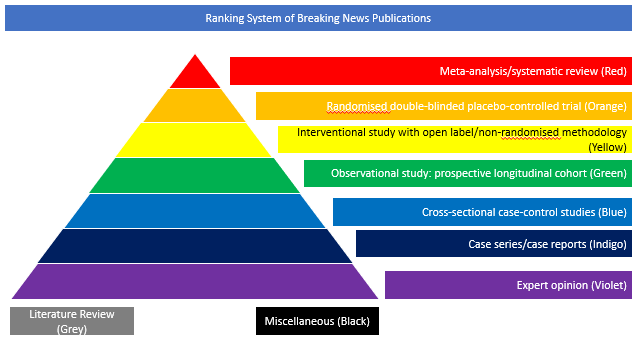Case series/case reports (Indigo)
The objective of this study recently published in Neurology was to explore whether hospitalised patients with SARS-CoV-2 and neurological symptoms have evidence of central nervous system (CNS) infection, inflammation and injury using CSF biomarker measurements. In particular, the authors assessed CSF SARS-CoV-2 RNA along with CSF biomarkers of intrathecal inflammation (CSF white blood cell count, neopterin, β2-microglobulin (β2M) and immunoglobulin G-index), blood-brain-barrier (BBB) integrity (albumin ratio), and axonal injury (CSF neurofilament light chain protein [NfL]) in 6 patients with moderate to severe COVID-19 and neurological symptoms who had undergone a diagnostic lumbar puncture. Neurological symptoms and signs included features of encephalopathies (4/6), suspected meningitis (1/6) and dysgeusia (1/6). SARS-CoV-2 infection was confirmed by rtPCR analysis of nasopharyngeal swabs. SARS-CoV-2 RNA was detected in the plasma of 2 patients (Cycle threshold [Ct] value 35.0–37.0) and in CSF at low levels (Ct 37.2, 38.0, 39.0) in 3 patients in one but not in a second rtPCR assay. CSF neopterin (median, 43.0 nmol/L) and β2-microglobulin (median, 3.1 mg/L) were increased in all. Median IgG-index (0.39), albumin ratio (5.35) and CSF white blood cell count (<3 cells/µL) were normal in all, while CSF NfL was elevated in 2 patients. The authors underline that their results on patients with COVID-19 and neurological symptoms suggest an unusual pattern of marked CSF inflammation in which soluble markers were increased but white cell response and other immunologic features typical of CNS viral infections were absent. While their initial hypothesis centred on CNS SARS-CoV-2 invasion, they could not convincingly detect SARS-CoV-2 as the underlying driver of CNS inflammation. These features distinguish COVID-19 CSF from other viral CNS infections, and raise fundamental questions about the CNS pathobiology of SARS-CoV-2 infection.
DOI: https://doi.org/10.1212/WNL.0000000000010977








